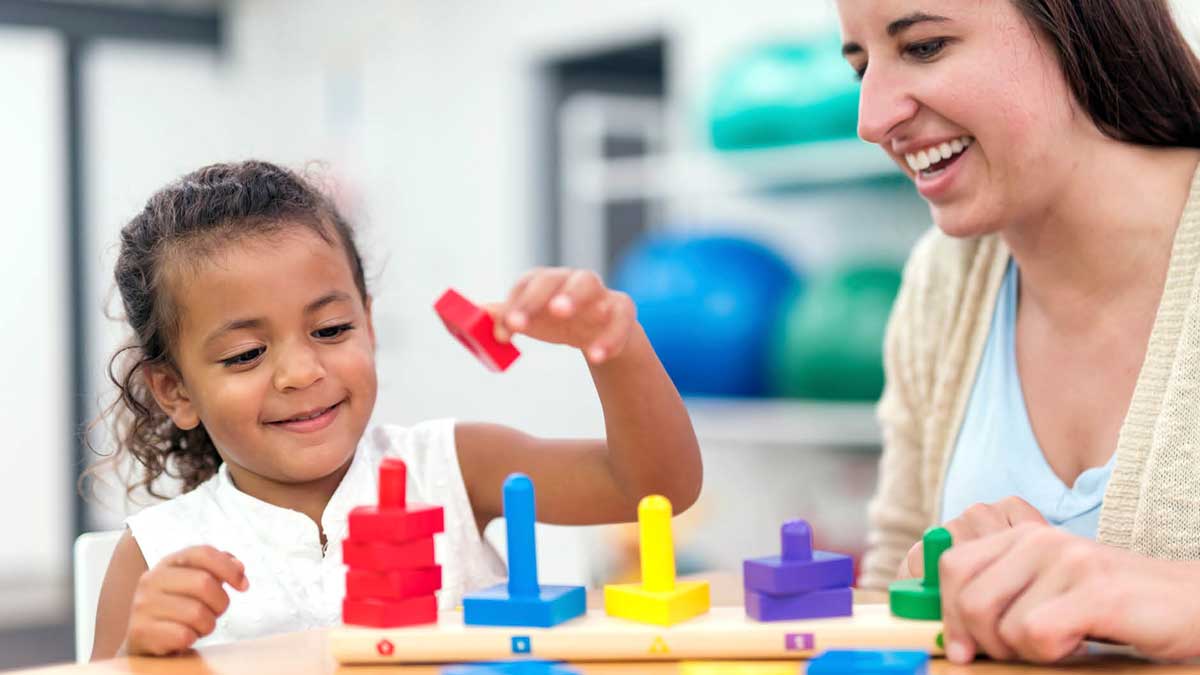
Playful Progress: The Impact of Pediatric Occupational Therapy on Childhood Development
Childhood is a time of wonder, imagination, and endless possibilities. Yet, for children facing developmental delays such as autism spectrum disorder and cerebral palsy, the path to realizing their potential can be fraught with obstacles.
These individuals often experience difficulties with their fine motor skills, sensory processing, and even self-care activities, making them highly dependent on their parents.
If you don’t want developmental disorders to rob the job off from your child’s life, occupational therapy can be helpful.
In this article, we’ll talk about what pediatric occupational therapy is and its significant impact on childhood development. You’ll also learn how pediatric occupational therapists work and help children in achieving their developmental milestones.
👉Also Read: Building a Bright Future: The Role of Occupational Therapists in Pediatric Care
What is Pediatric Occupational Therapy? Unveiling the Layers
Pediatric occupational therapy, or OT, focuses on addressing the developmental needs of children from infancy through adolescence. The primary goal of this therapy is to help individuals develop the basic skills they need to participate in everyday activities, also known as “occupations.”
These activities encompass a wide range of tasks, including simple self-care routines (such as dressing, brushing teeth, and grooming), complex school-related activities (such as writing, cutting, and paying attention in class), social interaction, and language skills development.
When your child undergoes OT with the right pediatric occupational therapist, his milestone map might look something like this:
Age Range: 6-9 Months
Developmental Milestones: Sits with some support, rolls over in both directions, transfers objects from hand to hand, babbles with different sounds, and understands “no.”
Age Range:9-12 Months
Developmental Milestones: Pulls to stand, cruises along furniture, picks up small objects with thumb and index finger, says first words (mama, dada), and imitates sounds and actions.
Age Range:12-18 Months
Developmental Milestones: Walks independently, starts to climb stairs, scribbles with crayons, speaks in two-word phrases, and follows simple commands.
Age Range:18-24 Months
Developmental Milestones: Runs, throws a ball overhand, builds towers of 2-3 blocks, speaks in simple sentences, and identifies familiar body parts.
Age Range:2-3 Years
Developmental Milestones: Jumps with both feet, pretends with toys, uses a spoon and fork, speaks in simple sentences, and follows two-step instructions.
Age Range:3-4 Years
Developmental Milestones: Rides a tricycle, catches a large ball, draws a circle, uses “I” and “me” pronouns, and asks questions about the world.
Note: Every child is unique, and the developmental milestones they achieve with occupational therapy sessions can be different. It’s advised to consult your child’s occupational therapist from time to time to keep up with his progress.
👉 Also Read: Empowering Young Minds: How Occupational Therapy Can Help Your Child Thrive
The Importance of Occupational Therapy in Pediatric Development
Pediatric occupational therapy is highly beneficial in assisting individuals in overcoming various cognitive developmental challenges. The therapy has a multi-faceted role and is crucial in promoting physical and mental health as well as improving the child’s development.
Here are a few examples of how occupational therapy can benefit your young one.
Improves Fine Motor and Cognitive Skills
Children with developmental delays and sensory processing disorders struggle with fine motor skills, such as using scissors, holding a pencil, or tying their shoelaces. Through play-based interventions, a pediatric occupational therapist helps such individuals develop strength, coordination, critical skills, and control in their movements, which enables them to navigate their environment more effectively.
Addresses Sensory Processing
Autism is one of the leading causes of sensory issues in children, and it impacts their ability to regulate responses to sensory stimuli and engage in daily tasks. A pediatric occupational therapist assesses your child’s sensory processing abilities and develops individualized interventions to help them better understand and respond to sensory input.
Fosters Social and Emotional Development
Occupational therapy plays a vital role in supporting children’s social-emotional development. During therapy, a board-certified analyst helps your child develop essential social skills such as communication, empathy, and cooperation, which are essential for survival.
Through techniques focused on social interaction, emotional expression, and problem-solving, therapists encourage children to build positive relationships and regulate their emotions more effectively.
Empowers Families
OT in pediatric development is not limited to direct interventions with children but also involves collaboration with families, caregivers, educators, and other professionals involved in the child’s care.
Many occupational therapists equip families with the education and strategies they need to understand their children’s needs, which is essential to advocate for their success.
Developmental disorders have a substantial impact on a child’s overall growth, and occupational therapy has proved to be an effective way to address them. While therapy directly improves the quality of life in children, it also empowers the parents to handle any situation, especially social challenges faced by their child.
👉 Also Read: Can Children’s Occupational Therapy Help My Child?
Contact Therapyland for Pediatric Occupational Therapy in Lawrenceville
Being a parent to a child with developmental delays is a struggle in itself. However, with occupational therapy, all your challenges can come to an end.
At Therapyland, we have an advanced occupational therapy department and board-certified pediatric occupational therapists ready to assist children in reaching their developmental milestones.
By disguising work as play, our therapists and analysts engage children in meaningful activities that contribute significantly to their development. As a result, the individuals get an environment that fosters growth and creates an enjoyable space for self-improvement for better cognitive development.
Reach out to us to inquire about our occupational therapy session. You can also call our occupational therapy practitioners at 678-648-7644 to schedule a consultation.